China increases science education to boost innovation
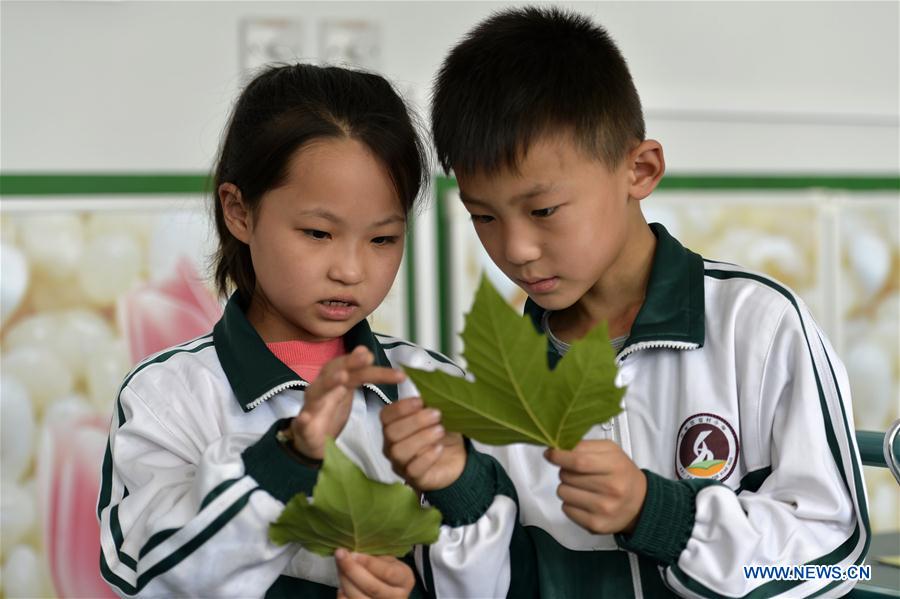
The first-year students view leaves at their the science class at Liucun Primary School in Liucun Village of Xingtai City, north China's Hebei Province, Aug. 31, 2017. Since the beginning of this semester, primary schools across China have started to offer the science course to the first-year students. [Photo/Xinhua]
Seven-year-old Zhang Lijie, who is starting his first year of elementary school, can't wait for science class.
The new student has always been enchanted by scientific phenomena and gadgets, such as 4D imaging and solar batteries.
"Thirst for knowledge, exploration and curiosity are the most precious qualities of children this age, and they need to be protected," said Kong Rongrong, Zhang's mother.
In February this year, China's Ministry of Education issued a new guideline for science education, requiring elementary schools to make science a compulsory subject for first-grade students.
The move showed the authorities' determination to improve children's scientific literacy, said Wang Kai, a researcher with the Beijing Academy of Educational Sciences.
Science classes were first introduced for primary school education 16 years ago when the subject "Nature" was changed to "Science" as part of a curriculum reform in 2001. But the class was only for students in third grade and above.
The new guideline will allow more children to start learning about science at an earlier age, said Chen Jie, a teacher at the China-Cuba Friendship Primary School.
"Studying science from the first grade can meet the children's growing curiosity and make scientific education more complete," said Chen.
More efforts are needed to help students better understand the relationship between nature and mankind, said Yu Bo, an associate researcher with the National Institute of Education Sciences and editor-in-chief of the science textbook.
China has released a series of regulations and plans to popularize science and technology and boost innovation among the public.
A science and technology progress plan published by the State Council in 2016 pledged greater efforts in education, publicity and popularization of science, vowing to raise the proportion of scientifically literate citizens to 10 percent by 2020.
A 2015 survey by the China Association for Science and Technology (CAST) revealed that the proportion of scientifically literate citizens has almost doubled from 3.27 percent in 2010 to 6.2 percent in 2015.
Major cities such as Shanghai, Beijing and Tianjin scored higher, reaching 18.7 percent, 17.5 percent and 12 percent respectively, similar to levels in the U.S. and Europe at the turn of the century.
However, the scientific literacy of Chinese people overall is still relatively low compared with citizens of developed countries.
"As far as I am concerned, most undergraduates and postgraduates I know lack interest in making innovations," said a university professor of engineering who refused to be identified.
It is necessary to cultivate children's interest in science as soon as they enter school, said the professor.
Some scientific institutions have taken part in the campaign to promote science through public activities to spread scientific knowledge.
On World Meteorological Day on March 18, the China Meteorological Administration opens to the public, attracting thousands of children to learn about meteorological phenomena and avoiding natural disasters.
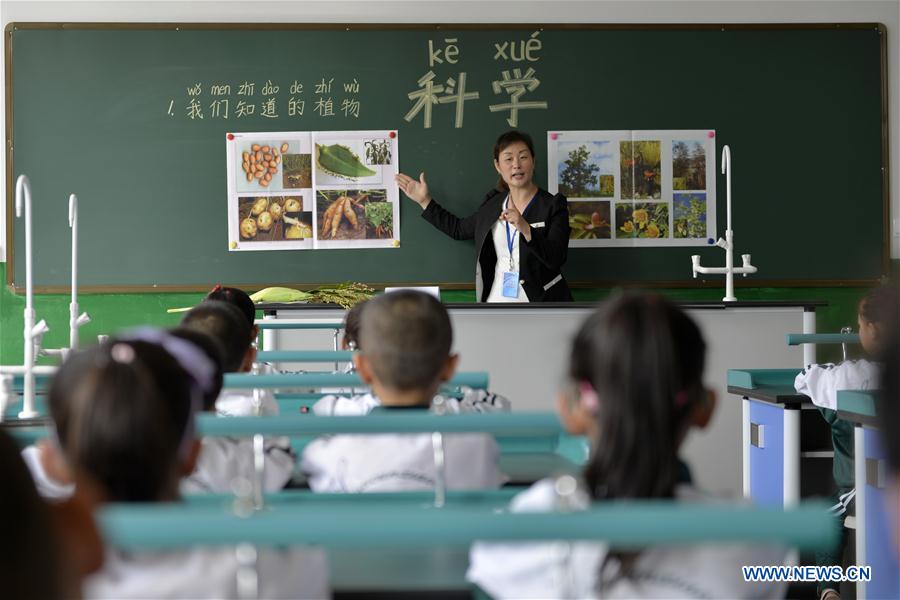
Science teacher Song Lihong introduces plants to first-year students at Liucun Primary School in Liucun Village of Xingtai City, north China's Hebei Province, Aug. 31, 2017. Since the beginning of this semester, primary schools across China have started to offer the science course to the first-year students. [Photo/Xinhua]
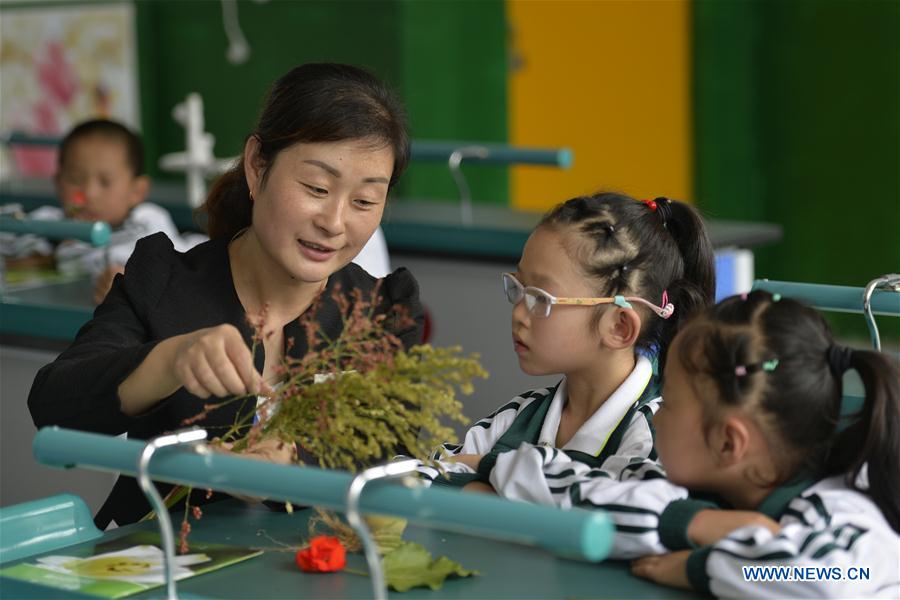
Science teacher Song Lihong (L) introduces sorghum to first-year students at Liucun Primary School in Liucun Village of Xingtai City, north China's Hebei Province, Aug. 31, 2017. Since the beginning of this semester, primary schools across China have started to offer the science course to the first-year students. [Photo/Xinhua]
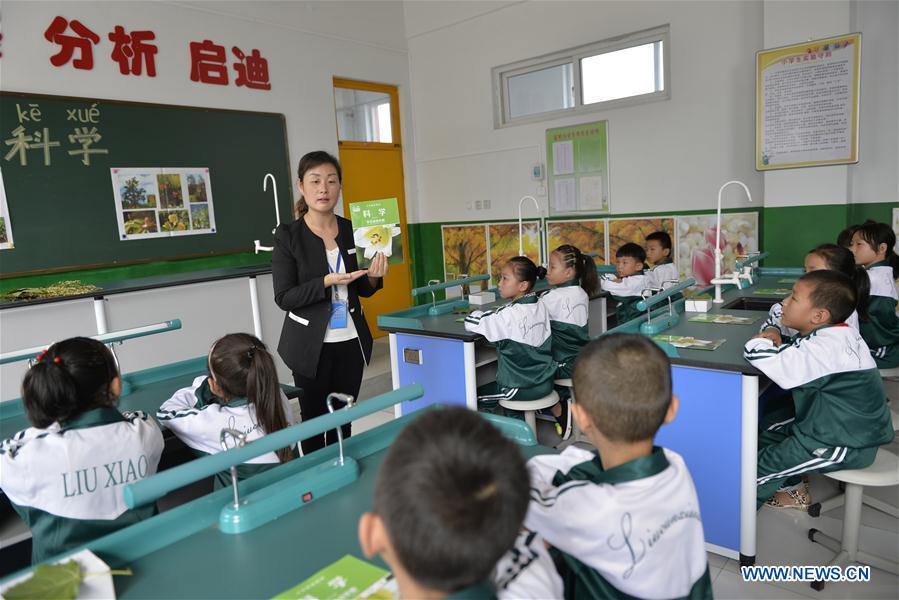
Science teacher Song Lihong introduces plants to first-year students at Liucun Primary School in Liucun Village of Xingtai City, north China's Hebei Province, Aug. 31, 2017. Since the beginning of this semester, primary schools across China have started to offer the science course to the first-year students. [Photo/Xinhua]
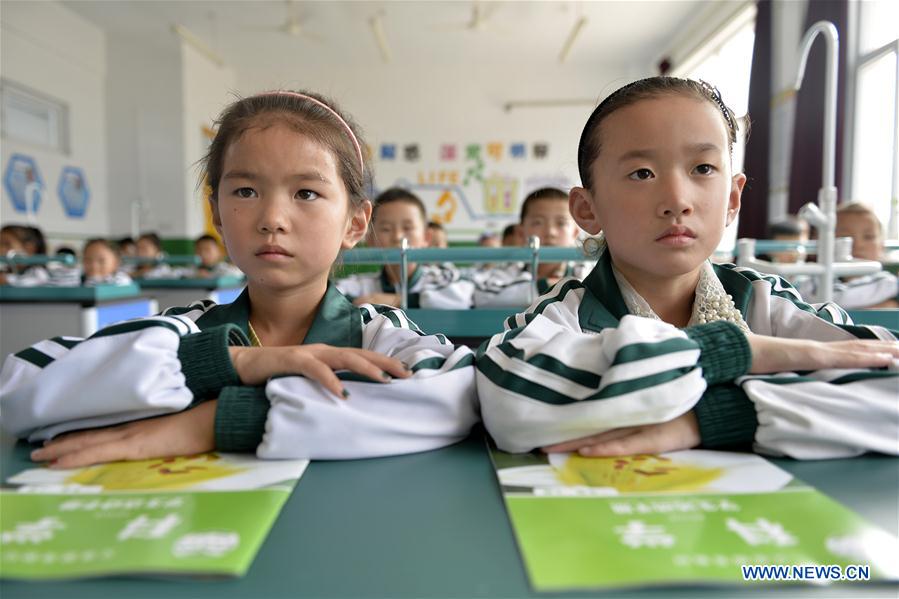
The first-year students learn the science course at Liucun Primary School in Liucun Village of Xingtai City, north China's Hebei Province, Aug. 31, 2017. Since the beginning of this semester, primary schools across China have started to offer the science course to the first-year students. [Photo/Xinhua]
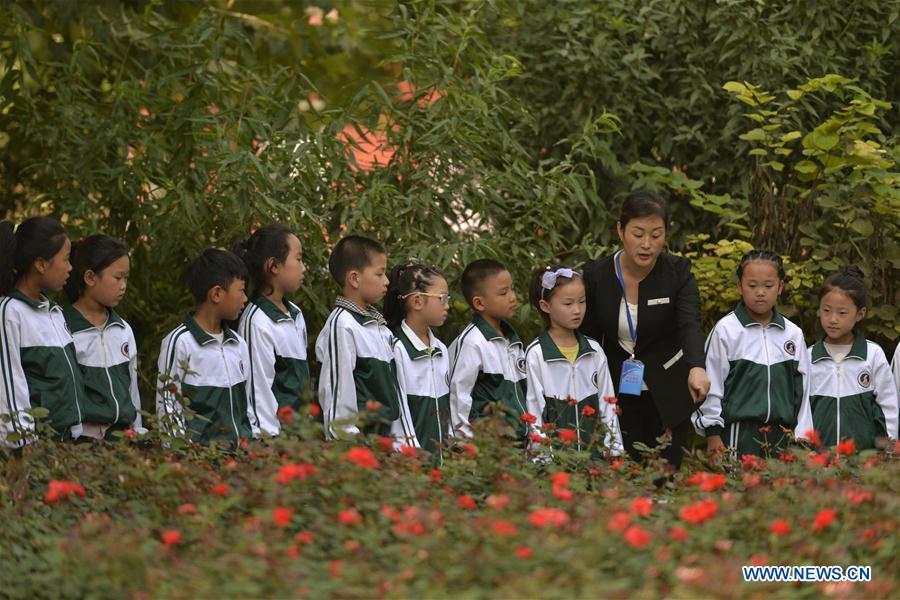
Science teacher Song Lihong (3rd R)introduces plants to first-year students at Liucun Primary School in Liucun Village of Xingtai City, north China's Hebei Province, Aug. 31, 2017. Since the beginning of this semester, primary schools across China have started to offer the science course to the first-year students. [Photo/Xinhua]
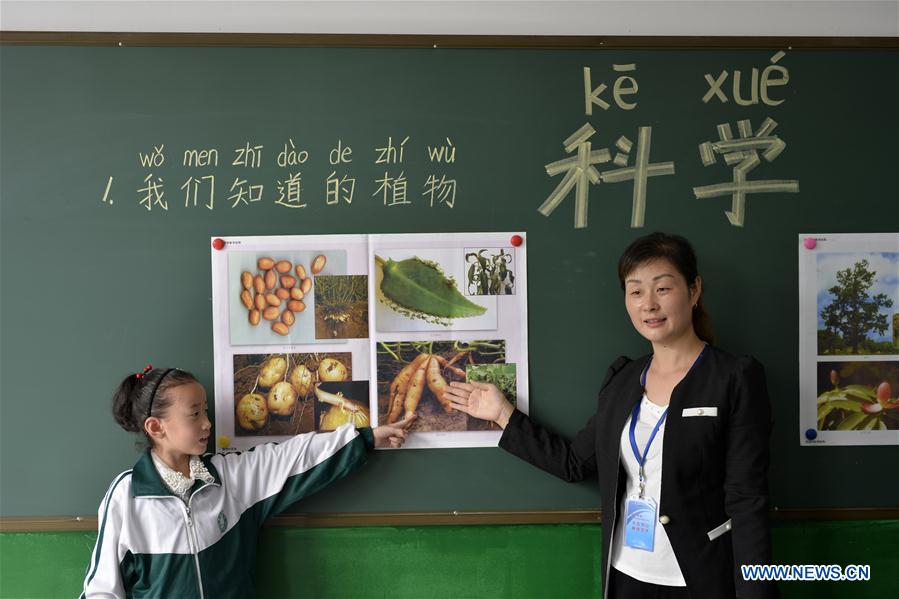
Science teacher Song Lihong (L) introduces plants to first-year students at Liucun Primary School in Liucun Village of Xingtai City, north China's Hebei Province, Aug. 31, 2017. Since the beginning of this semester, primary schools across China have started to offer the science course to the first-year students. [Photo/Xinhua]
Your Comment
Name E-mailRelated News
-
;
Based in Lhasa, Tibet Vista is a Tibet travel agency that specialized in Tibet permit, and Tibet tours for both private and group travelers at a local price!
•4 Days Lhasa City Group Tour from USD 460 •8 Days Everest Base Camp Group Tour from USD 850 •15 Days Mt.Kailash Group Tour from USD 1780 •2016 Tibet Train Tours from Beijing, Shanghai, Chengdu, Xining,etc




